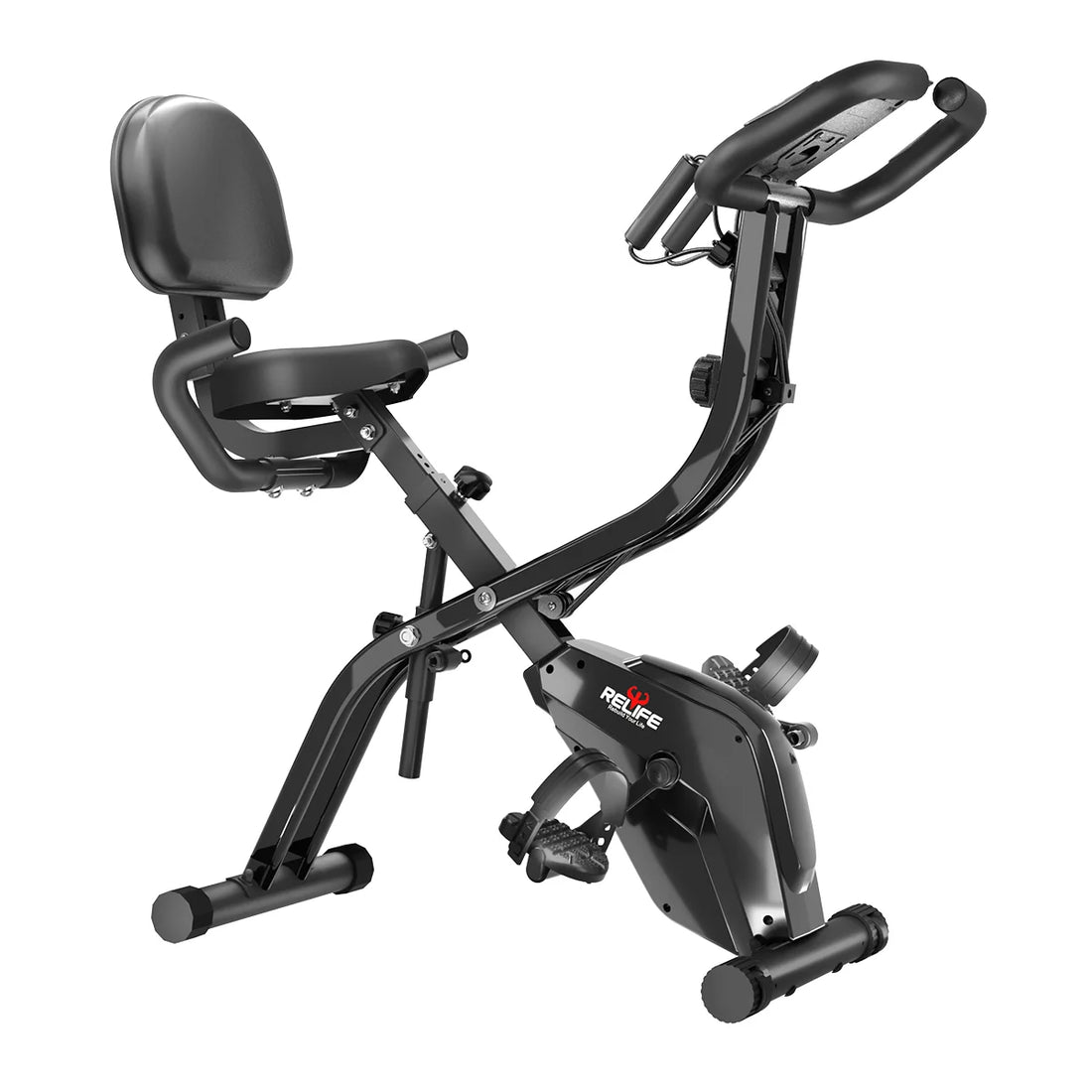It’s time to show off your figure again. So if you want to lose some weight and keep it off, where do you start? A 12-week weight loss program for beginners might be just what you need to get in shape. Today’s article will outline a simple and effective weight loss plan that will help you achieve your weight loss goals and stay in shape.
This 12-week weight loss program will help you lose weight steadily and slowly over 12 weeks. This 12-week weight loss program includes aerobic exercise and strength training, as well as a healthy eating plan throughout the 12 weeks. There’s no better time to start working out than now because starting now will ensure you have enough time to achieve your fitness goals. In addition, adhering to a 12-week weight loss program can help you lose weight, maintain a perfect figure, and help you achieve success.
The best part about this 12-week weight loss program is that it’s flexible enough to fit into your busy schedule. You can do these exercises at home or the gym. After exercising for some time, you can also adjust the intensity according to your conditions to meet your fitness goals. So if you are currently looking for an exercise program to lose weight and stay in shape, then you can try the 12-week weight loss program, which may be a good place to start.
The 12-week weight loss program can help you lose about 20 pounds. If you want to lose more fat, you can also try the 16-week program to achieve your fitness goals; while those who don’t need to lose a lot of weight may only take 8 weeks to achieve your fitness goals. This 12-week weight loss program focuses on whole foods and uses lots of cardiovascular exercise to burn body fat. And strengthen muscles through strength training to boost metabolism.
let’s start!
Importance of Using Weights and Cardio Together
Combining weights (resistance training) and cardio (aerobic exercises) in a 12-week weight loss program is a highly effective approach for achieving comprehensive health benefits. This combination supports various aspects of physical fitness, including strength, endurance, heart health, and weight management.
1. Enhanced Fat Loss
Caloric Burn: Cardio exercises tend to burn more calories during the activity compared to resistance training. However, weight lifting increases muscle mass, which boosts your resting metabolic rate (RMR), meaning you burn more calories even when at rest.
Afterburn Effect: High-intensity resistance training can lead to a higher afterburn effect (excess post-exercise oxygen consumption – EPOC) than steady-state cardio.
2. Improved Muscle Tone and Strength
Muscle Building: Weights help in building muscle strength and size, improving overall body composition. Muscles are metabolically active tissues, so more muscle mass significantly contributes to a higher metabolism.
Endurance: Cardiovascular exercises improve the efficiency of the heart and lungs, providing more oxygen-rich blood to your muscles during workouts, which can enhance endurance performance even in strength training.
3. Heart Health
Cardiovascular Improvement: Cardio exercises are essential for heart health, reducing the risk of heart diseases by improving blood circulation, lowering blood pressure, and increasing HDL cholesterol levels.
Blood Sugar Control: Combining weights and cardio can be more effective in managing blood sugar levels than either method alone, which is particularly beneficial for people with or at risk of type 2 diabetes.
4. Mental Health Benefits
Stress Reduction: Both forms of exercise have been shown to reduce stress, anxiety, and depressive symptoms, thanks to the release of endorphins, often referred to as feel-good hormones.
Cognitive Function: Engaging in both aerobic and resistance training has been associated with improved cognitive function, including memory, attention, and executive function.
5. Flexibility and Balance
Functional Fitness: While weights improve strength, incorporating functional movements can enhance balance and flexibility, reducing the risk of falls and injuries.
Variety: Mixing cardio and weights keeps the workout routine varied and interesting, which can help maintain motivation and adherence to a fitness program over time.
Benefits of Losing Fat
Losing excess body fat can have numerous positive effects on both physical health and mental well-being. It’s important to approach weight loss in a healthy, sustainable manner, focusing on a balanced diet and regular exercise.
1. Improved Heart Health
Reduced Risk of Cardiovascular Diseases: Lowering body fat decreases the risk of heart diseases, including heart attack and stroke. It helps in reducing blood pressure, cholesterol levels, and triglyceride levels.
Improved Circulation: Weight loss can lead to better blood circulation, which is crucial for overall heart health.
2. Enhanced Metabolic Health
Better Blood Sugar Control: Losing fat can improve insulin sensitivity, which helps in better management of blood sugar levels. This is particularly beneficial for people with type 2 diabetes or at risk of developing it.
Lowered Risk of Metabolic Syndrome: Weight loss can reduce the risk factors associated with metabolic syndrome, including high blood pressure, high blood sugar, excess body fat around the waist, and abnormal cholesterol levels.
3. Increased Mobility and Pain Reduction
Ease of Movement: Shedding extra pounds can significantly increase mobility and flexibility, making daily activities and physical exercise easier and more enjoyable.
Reduced Joint Pain: Excess weight puts additional pressure on joints, leading to pain and discomfort. Weight loss can alleviate this pressure and reduce pain, especially in the knees and hips.
4. Improved Mental Health
Boost in Self-Esteem and Confidence: Achieving weight loss goals can greatly improve self-image and confidence, contributing to overall mental well-being.
Reduction in Symptoms of Depression and Anxiety: Regular physical activity associated with weight loss can also play a role in reducing symptoms of depression and anxiety.
5. Better Sleep Quality
Reduction in Sleep Apnea: Excess weight can contribute to sleep disorders such as sleep apnea. Losing fat can help reduce the severity of sleep apnea and in some cases, eliminate it.
Improved Sleep Patterns: Weight loss is often associated with better sleep quality and duration.
6. Longevity
Increased Life Expectancy: By reducing the risk of various chronic diseases associated with obesity, losing excess fat can contribute to a longer, healthier life.
7. Enhanced Respiratory Function
Improved Breathing: Weight loss can lead to better lung function and ease breathing difficulties.

12-Week Weight Loss Program Description
A 12-week weight loss program is designed to help individuals achieve their weight loss goals through a structured and holistic approach. Such a program typically combines elements of diet, exercise, and lifestyle changes to promote healthy weight loss and improve overall well-being. Here’s an outline of what a comprehensive 12-week weight loss program might include:
Week 1-4: Foundation Building
Diet:
Nutritional Education: Learn about macronutrients (proteins, carbohydrates, fats) and how to balance them.
Calorie Awareness: Introduction to tracking daily caloric intake and understanding the caloric deficit needed for weight loss.
Meal Planning: Start with simple meal plans focusing on whole foods, vegetables, lean proteins, and reducing processed foods and sugars.
Exercise:
Assessment: Establish a baseline of fitness levels.
Introduction to Exercise: Begin with moderate-intensity cardiovascular exercises like walking, cycling, or swimming for at least 150 minutes per week, along with basic strength training exercises twice a week.
Lifestyle:
Goal Setting: Set realistic weight loss and health goals.
Sleep Hygiene: Emphasize the importance of getting 7-9 hours of quality sleep per night.
Stress Management: Introduce basic stress management techniques such as deep breathing or meditation.
Week 5-8: Intensification
Diet:
Refinement of Diet: Adjust meal plans based on progress and feedback. Introduce more varied and complex recipes.
Mindful Eating: Focus on eating slowly and recognizing hunger/fullness cues.
Exercise:
Progression: Increase the intensity and/or duration of cardiovascular exercises. Incorporate more advanced strength training exercises.
Variety: Add new forms of exercise to keep the routine interesting and cover all fitness aspects, including flexibility and balance.
Lifestyle:
Hydration: Stress the importance of drinking adequate water.
Time Management: Develop strategies for managing time effectively to accommodate healthy cooking and regular exercise.
Week 9-12: Consolidation and Maintenance
Diet:
Sustainable Eating Habits: Emphasize the importance of a balanced diet that can be maintained long-term.
Adjustments for Plateaus: Learn strategies to overcome weight loss plateaus.
Exercise:
Establishing Routine: Ensure the exercise regime is something enjoyable and sustainable.
Challenge Yourself: Incorporate challenges to continue improving fitness, such as trying a new sport or setting a personal record.
Lifestyle:
Review and Reflect: Assess progress towards goals and set new ones.
Support Systems: Encourage finding or creating a support system for continued motivation and accountability.
Healthy Habits: Focus on reinforcing the healthy habits developed during the program to ensure long-term success.

The 12 Week Diet Plan
Creating a 12-week diet plan involves careful consideration of nutritional balance, caloric intake, and personal preferences to ensure it’s both effective for weight loss and sustainable in the long term. The goal is to create a plan that gradually introduces healthier eating habits while reducing calorie intake in a way that doesn’t feel too restrictive.
Weeks 1-4: Establishing Healthy Foundations
Objective: Gradually introduce healthier food choices and reduce portion sizes.
Week 1:
Focus: Increase water intake and aim for at least 5 servings of fruits and vegetables per day.
Action: Replace sugary drinks with water or herbal teas.
Week 2:
Focus: Integrate lean proteins and whole grains into meals.
Action: Include a lean protein source (chicken, fish, tofu) and a serving of whole grains (brown rice, quinoa) in at least two meals per day.
Week 3:
Focus: Reduce processed foods and sugars.
Action: Start reading labels to avoid foods high in added sugars and swap processed snacks for whole food options like nuts or fruit.
Week 4:
Focus: Portion control.
Action: Use smaller plates for meals and start measuring portions using common household tools (e.g., a cupped hand for carbs, and a palm-sized serving for proteins).
Weeks 5-8: Nutritional Balance and Mindful Eating
Objective: Enhance the quality of the diet by focusing on nutritional balance and developing a mindful eating practice.
Week 5:
Focus: Introduce more variety of vegetables and fruits.
Action: Try at least one new vegetable or fruit each week.
Week 6:
Focus: Balance macronutrients.
Action: Ensure each meal contains a balance of macronutrients – about half your plate is vegetables and fruits, a quarter of protein, and a quarter of whole grains.
Week 7:
Focus: Mindful eating.
Action: Practice eating without distractions (e.g., TV, phone) and pay attention to hunger and fullness cues.
Week 8:
Focus: Healthy fats.
Action: Incorporate healthy fats from sources like avocados, nuts, seeds, and olive oil into your diet.
Weeks 9-12: Refinement and Sustainability
Objective: Refine the diet based on progress and feedback, focusing on sustainability.
Week 9:
Focus: Adjust and refine.
Action: Adjust portion sizes or macronutrient balance based on progress and how you feel.
Week 10:
Focus: Experiment with recipes.
Action: Try new healthy recipes to keep meals interesting and enjoyable.
Week 11:
Focus: Plan for eating out.
Action: Develop strategies for making healthy choices when eating out (e.g., reviewing menus ahead of time, and choosing grilled over fried foods).
Week 12:
Focus: Reflect and plan.
Action: Reflect on what worked well, and what didn’t, and plan how to incorporate these learnings into a sustainable eating pattern going forward.

Workout Summary
If you want to do strength training, you can refer to the blog: 12 Week Strength Training Program for Women: Cardio & Strength Training. The 12-week weight loss program is an exercise program suitable for all beginners. This program can help you lose weight and achieve your ideal fitness goals. This 12-week weight loss program includes strength training and bodyweight exercises and requires you to exercise every week to achieve your fitness goals.
Therefore, if you are looking for a healthy weight loss journey or want to enhance your physique, then the 12-week weight loss program is a suitable choice. Give it a try!
















